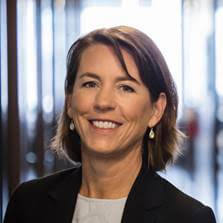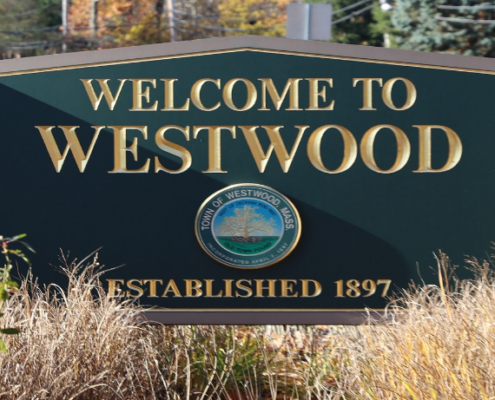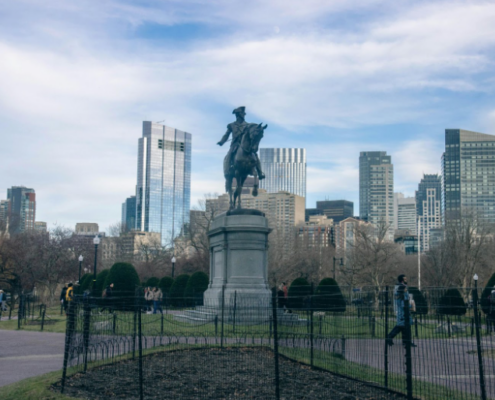Georgetown’s Dr. Marguerite Roza on K-12 School Finance, Spending, & Results
This week on “The Learning Curve,” Gerard and Cara talk with Dr. Marguerite Roza, Research Professor and Director of the Edunomics Lab at Georgetown University. Professor Roza describes the three distinct phases of how American K-12 education has been funded over the last 40 years, and implications for equity and overall student achievement. She offers perspectives on the productivity of America’s $800 billion annual spending on K-12 education, with 90 percent funded by state and local governments. Professor Roza shares thoughts on the strengths and weaknesses of federal K-12 spending and policymaking, given that NAEP scores and achievement gaps remain largely unchanged after Race to the Top and ESSA. With only about half of total K-12 spending allocated to student instruction, she shares concerns about the growth of bureaucracies and non-instructional staffing at all levels – especially in larger urban school districts, where per pupil spending surpasses $20,000, yet achievement gaps and low graduation rates persist. Lastly, they explore the role of philanthropy in K-12 education’s ongoing struggles to deliver better results for schoolchildren, and criticisms by Diane Ravitch and the teacher unions.
Stories of the Week: Harvard Professor Cornel West laments Howard University’s decision to dismantle its Classics Department, noting the influence of ancient thinkers on Frederick Douglass and the Rev. Martin Luther King, Jr. Private schools have remained open for most of the past year while their public counterparts have stayed closed – is that a sign of the imbalance in power between parents and teachers unions?
Guest:
 Dr. Marguerite Roza is Research Professor at Georgetown University and Director of the Edunomics Lab, a research center exploring and modeling complex education finance decisions to inform policy and practice. She leads the McCourt School of Public Policy’s Certificate in Education Finance, which equips participants with practical skills in strategic fiscal management, policy analysis, and leadership. Dr. Roza’s research traces the effects of fiscal policies at the federal, state, and district levels for their implications on resources at school and classroom levels. Her calculations of dollar implications and cost equivalent tradeoffs have prompted changes in education finance policy at all levels of the education system. She served as a Senior Economic Advisor to the Bill & Melinda Gates Foundation and as a Lieutenant in the U.S. Navy teaching thermodynamics at the Naval Nuclear Power School. Roza is author of the highly regarded education finance book, Educational Economics: Where Do School Funds Go? She earned a Ph.D. in Education from the University of Washington and a B.S. from Duke University, and studied at the London School of Economics and the University of Amsterdam.
Dr. Marguerite Roza is Research Professor at Georgetown University and Director of the Edunomics Lab, a research center exploring and modeling complex education finance decisions to inform policy and practice. She leads the McCourt School of Public Policy’s Certificate in Education Finance, which equips participants with practical skills in strategic fiscal management, policy analysis, and leadership. Dr. Roza’s research traces the effects of fiscal policies at the federal, state, and district levels for their implications on resources at school and classroom levels. Her calculations of dollar implications and cost equivalent tradeoffs have prompted changes in education finance policy at all levels of the education system. She served as a Senior Economic Advisor to the Bill & Melinda Gates Foundation and as a Lieutenant in the U.S. Navy teaching thermodynamics at the Naval Nuclear Power School. Roza is author of the highly regarded education finance book, Educational Economics: Where Do School Funds Go? She earned a Ph.D. in Education from the University of Washington and a B.S. from Duke University, and studied at the London School of Economics and the University of Amsterdam.
The next episode will air on Wednesday, May 5th, 2021 at 12 pm ET with guest, Jonathan Butcher, the Will Skillman Fellow in Education at The Heritage Foundation.
Tweet of the Week:
Part of the history of today's education choice movement: Booker T. Washington and Sears head Julius Rosenwald joined forces to build almost 5,000 schools for Black students in the South. https://t.co/SJj66lrsX5 via @WSJ
— Doug Tuthill (@DougTuthill) April 24, 2021
News Links:
Cornel West/WaPo: Howard University’s removal of classics is a spiritual catastrophe
https://www.washingtonpost.com/opinions/2021/04/19/cornel-west-howard-classics/
Colleen Hroncich: School Closures Highlight The Need For Parental Choice
https://www.iwf.org/2021/04/22/school-closures-highlight-the-need-for-parental-choice/














